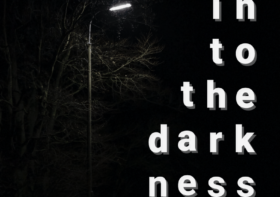We can do better pt. 1
**Writing this post terrifies me, but to stand and see how we are neglecting living composers does it even more. Daily, I see posts of fellow choral composers who are struggling to connect with ensembles and others. I see how it affects their confidence, art, finances, and their relationships. I go through this myself.
What is difficult about giving voice to these issues is that they directly benefit me, and it feels awkward and scares me that it might be perceived wrong. As I move forward with a series of posts about my opinion on some scenarios where I believe there is space for growth, it is my hope that instead of making enemies, I find advocates like myself who are looking to foster healthy collaborations for the sake of the future of our new choral music.**
Neglecting choral composers
During the past years, I’ve noticed several moments where I’ve felt a lack of balance in the power scale. Though I treasure the ones where I work with people open to holding a collaborative dialogue, I always struggle with the not-so-pleasant experiences where I’ve had to beg for answers, attention, or respect, if given any.
People are used to telling new artists: “This is normal. You will hear the word ‘no’ and pile up rejections and that this is ok. Keep trying. One day you will make it.” Keeping the toll on mental health that this takes on us composers and normalizing these positions of power where composers are begging for one minute of attention is not sustainable.
Many conductors recommend composers to share their music for free, so they can get a decent recording and build a portfolio, but I ask myself, why is this the norm? Why must share our work for free to have the privilege of being performed and getting a recording? Is this fair? What about the value of our music and the bills that pile up while we spend time writing that piece that we are giving away for free, so we are worthy of a performance?
Mental health and Choral Composers
People talk about side hustling and writing music after your day job. That is understandable. However, there are emotional and physical demands of writing music and it is a challenge for composers to balance their life with their careers. There is room for us to do better and respect more the work of living composers. We vulnerably share ourselves through our music, and that takes time and hard work to develop. Many conductors reject score after score, not even responding to emails or a simple “thank you for sharing your music, but it is not a match with my programming needs at the moment.”
As I see today, many people have power other than the composer or lyricist/poet. Most publishers get 90% of the royalty of our pieces, not letting us know who bought our music or how they help us sell it. Conductors get to hand pick what will be best for their choirs, often buying from publishers with no contact with living composers. If they are kind enough to consider programming living composers, they will ask around, often programming the same composers of the moment. Singers get to perform and be in front of the audience, learn new skills through the repertoire, and create community.
Composers work in solitude and are often neglected or left out of the creative process after the piece is ready.
Creating a healthy future for choral artists
It is important to point out that there are some people celebrating new music and championing living composers. If you are one of them, I sincerely thank you. As a new choral music advocate and composer, this is what I am trying to work through. I want to create affordable opportunities for composers and choirs to create, perform, and share the choral music of our times. I want our generation to have a healthy path as choral composers.
These are just some of the issues I see out there. I am sure there are more to be addressed. I would love to know your thoughts and to hold conversations about how we can best collaborate and advocate for our living choral artists and for this art that we love so much!



